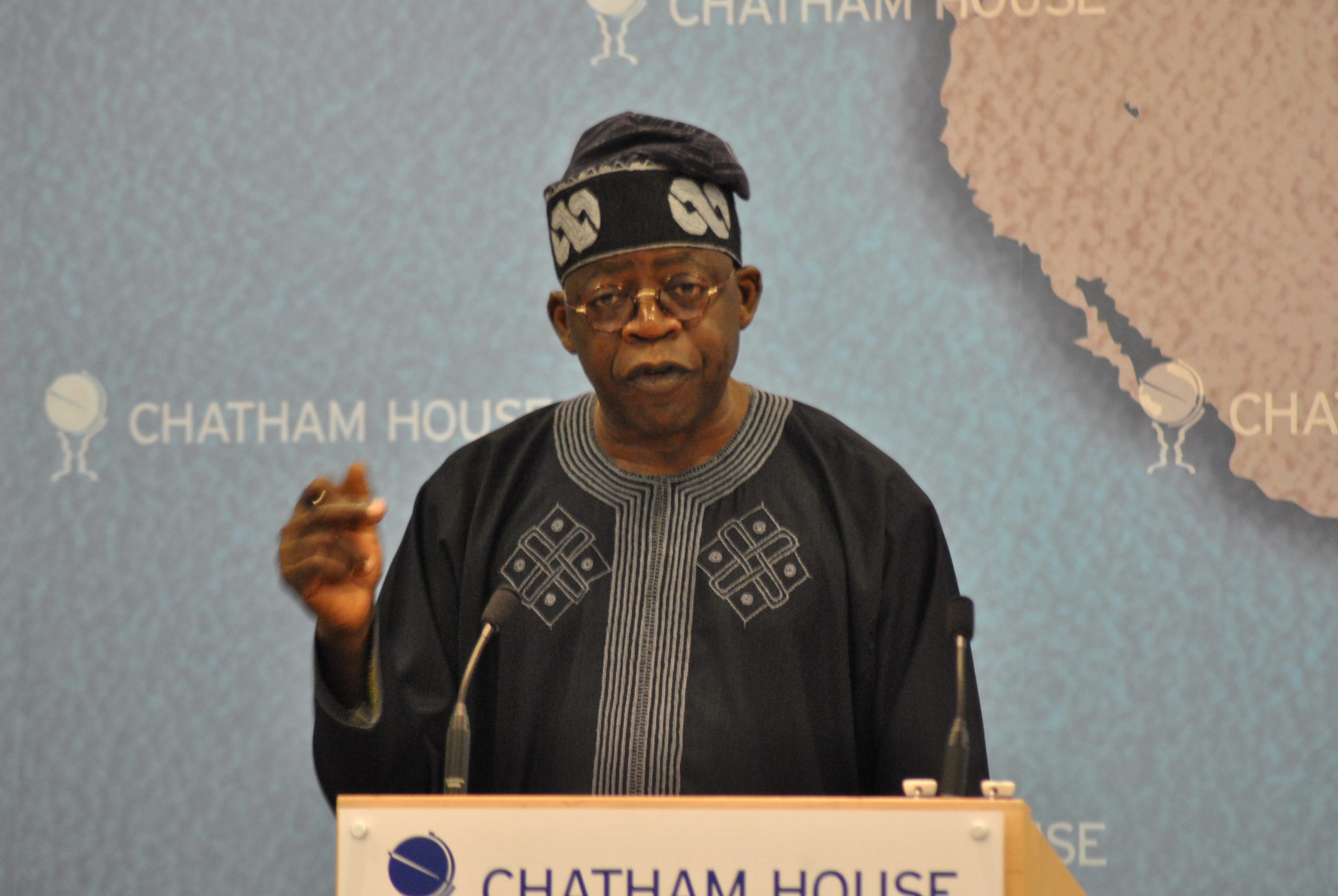Bola Tinubu faces the challenge of managing a heavily indebted economy left behind by his predecessor Buhari, whose protectionist measures unsettled investors.
Bola Tinubu, Nigeria’s new President, outlined his plans during his inauguration ceremony on Monday. He pledged to achieve a minimum annual economic growth of six percent, attract investment by removing barriers, generate employment opportunities, unify the exchange rate, and address the prevailing insecurity in the country.
Regarding the economy, Tinubu emphasized the goal of higher GDP growth and substantial reduction in unemployment rates. The inauguration took place at Abuja’s Eagle Square, where his predecessor Muhammadu Buhari concluded his eight-year tenure and departed for his rural home in Katsina state.
During Buhari’s term, his protectionist policies, including border closures in 2019, unsettled investors. Nigeria’s currency, the naira, also experienced a 70 percent devaluation, while the country struggled to manage escalating debt as Africa’s largest economy. The current unemployment rate stands at over a third of the population, and voters have high expectations for Tinubu to address job creation, stabilize the declining economy, and improve security, as promised during his campaign.
Apart from these pressing issues, the new President will grapple with challenges such as foreign exchange and fuel shortages, soaring inflation, widespread insecurity, unreliable power generation, and declining oil production due to theft and insufficient investment.
In an effort to foster an investor-friendly environment, Tinubu assured both local and foreign investors that the government would review complaints about multiple taxation and obstacles to investment. He also confirmed that the fuel subsidy, which is popular but expensive, will be eliminated in alignment with the current year’s budget, starting from June. Furthermore, he expressed the need for a comprehensive review of monetary policy and advocated for a unified exchange rate to channel funds into productive investments rather than speculative activities.
Economists already speculate that Tinubu may devalue the naira by up to 15 percent to stabilize the economy, considering his criticisms of recent currency policies and swaps.
Additionally, Tinubu inherits a country divided by his contested victory, currently under legal challenge by his main rivals who perceive him as representing the old guard. In the February elections, he secured the win with only 37 percent of the vote, narrowly surpassing Atiku Abubakar and Peter Obi, his closest competitors. However, Tinubu extended an olive branch across the political divide, calling for national unity and harmony.

The election had mobilized young voters seeking an alternative to the two dominant parties that have controlled Nigerian politics since the end of military rule in 1999. However, what was promised to be the freest and fairest election left many feeling frustrated.
To address the prevalent violence in Nigeria, Tinubu pledged to reform the security services through recruitment of more personnel, improved training, better equipment, and enhanced remuneration. The country currently grapples with rampant killings, kidnappings for ransom in the northwest, separatist and gang violence in the southeast, and ongoing conflicts between farmers and herders in the Middle Belt states.
Tinubu’s economic plan in brief
Tinubu’s vows and the potential implications for Nigeria’s economic landscape may be summarized as follows.
- Economic Revitalization: Tinubu’s vow to reset the ailing economy indicates a recognition of the pressing economic challenges facing Nigeria. This suggests a departure from the previous administration’s policies and a fresh approach to address issues such as high debt, protectionism, unemployment, and inadequate infrastructure.
- GDP Growth Target: Tinubu’s pledge to achieve a minimum six percent annual GDP growth demonstrates his ambition to stimulate economic expansion. This target indicates a determination to surpass previous growth rates and create a favorable environment for increased productivity and investment.
- Investment and Job Creation: By emphasizing the removal of barriers to investment, Tinubu aims to attract both local and foreign investors. This commitment signifies a recognition of the importance of investment in generating employment opportunities, fostering economic development, and diversifying the Nigerian economy.
- Exchange Rate Unification: The vow to unify the exchange rate signals Tinubu’s intent to streamline Nigeria’s multiple exchange rate system. This move can enhance transparency, reduce currency speculation, attract foreign investment, and promote stability in the economy.
- Addressing Insecurity: Tinubu’s acknowledgement of rampant insecurity is significant as it recognizes the detrimental impact of insecurity on economic growth. By prioritizing security reforms, including personnel, training, equipment, and remuneration, Tinubu aims to create a safer environment that fosters economic activity and attracts investment.
- Sector-Specific Challenges: It highlights several sector-specific challenges, such as foreign exchange and fuel shortages, high inflation, inadequate power generation, and declining oil production. Tinubu’s vows indicate an intention to address these issues through policy reforms, budgetary adjustments, and targeted interventions.
- Political Division and Legal Challenges: The mention of Tinubu’s contested victory and ongoing legal challenges suggests potential political instability and uncertainty. These factors may impact the implementation of proposed economic reforms and require Tinubu to navigate a politically divided landscape to achieve his goals.
Bola Tinubu’s vows to reset Nigeria’s ailing economy convey a determination to address economic challenges, stimulate growth, attract investment, create jobs, unify the exchange rate, and tackle insecurity. The success of these initiatives will depend on the effectiveness of policy implementation, navigating political obstacles, and adapting to evolving economic circumstances.
SOURCE: AL JAZEERA AND NEWS AGENCIES


